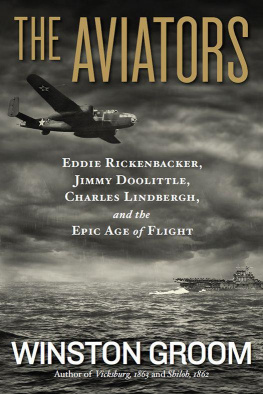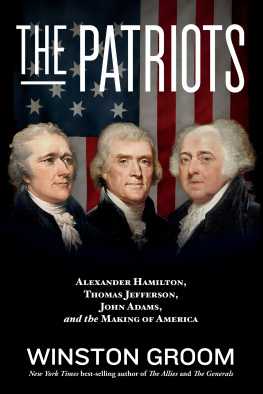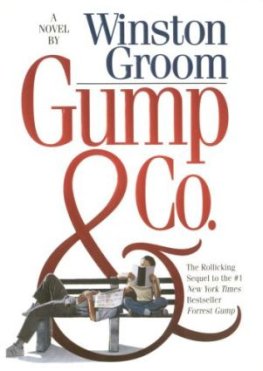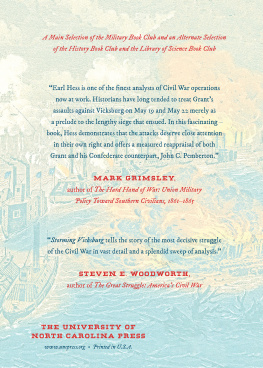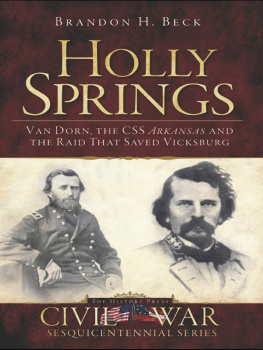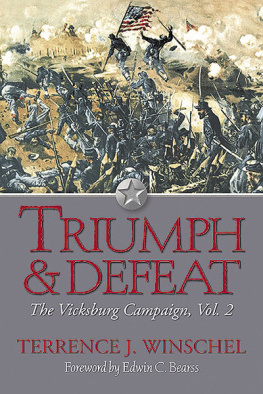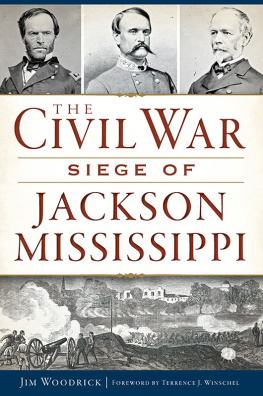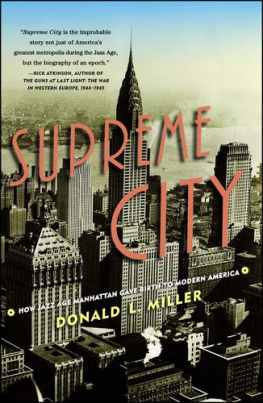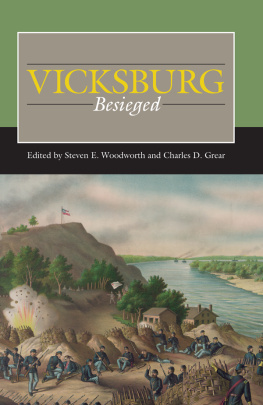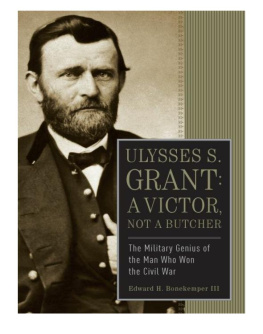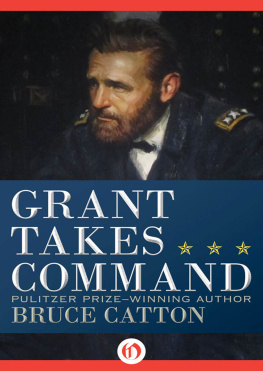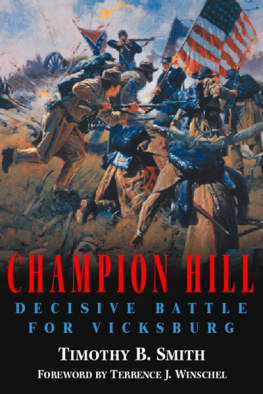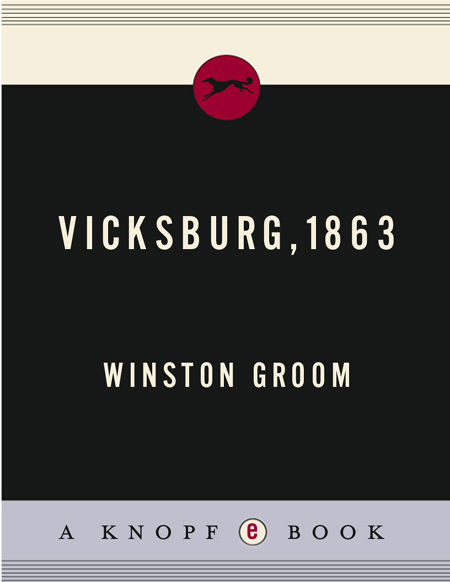Preface
The Battle of Vicksburg was the climax of a long, arduous struggle by the Union to regain control of the Mississippi River valley and sever the Confederacy in two. In some ways it resembled a messy chess game, filled with unpleasant and dangerous surprises amid the ruthless grind to capture the rebel king. It was fought from the pestilent swamps of Louisiana to the snow and ice of northern Tennessee. It ranged all along the Mississippi River, with powerful gunboats steaming down from Cairo, Illinois, and immense oceangoing warships coming up from the Gulf of Mexico. It was fought with armies great and small, from Belmont, Missouri, to Fort Donelson, Tennessee; from Shiloh to Memphis and from New Orleans to Baton Rouge.
It was a hard and bloody road, rife with tenacity and indecision, brilliance and stupidity, valor and arrogance, suffering and elation, victory and defeat. When it was over thousands of men, North and South, would be buried along its path, but the death knell of the Southern Confederacy had been struck.
With the Mississippi River valley in Federal hands, the Union could proceed with its plan to carve up the rest of the Confederacy, which it didthough not without setbacksfrom middle Tennessee through Alabama and Georgia, in the end leaving the Rebel armies in the Carolinas and Virginia without recourse to food or supplies.
The purpose of this book is to tell the story of the Battle of Vicksburg and the events leading up to it, as well as its aftermath, which, had Southern leaders exercised better judgment, well might have averted the appalling events during the following two years.
It is also the story of Ulysses S. Grant, the unlikely forty-year-old Union general who at the beginning of the war could not even secure a commission but, in the end, fought his army five hundred miles downriver to deliver the coup de grce that should have ended the Civil War.
Introduction
By no design of my own, in all the earlier war histories I've written, some close relative was involved in the conflict. It's not that my people were professional warriors; they just happened to be of the right age at the right time to be swept up in the fighting. In Shrouds of Glory: From Atlanta to Nashville; The Last Great Campaign of the Civil War it was my great-grandfather, who fought with Joe Wheeler's cavalry during the Battle of Atlanta. In A Storm in Flanders: The Ypres Salient, 19141918; Tragedy and Triumph on the Western Front, it was my grandfather, who went to France with the Thirty-first Infantry (Dixie) Division. In 1942: The Year That Tried Men's Souls it was my father, who was a captain in the army during World War II. In Patriotic Fire: Andrew Jackson and tean Laffite at the Battle of New Orleans, my great-great-great-grandfather was a major with the U.S. Seventh Infantry Regiment during the War of 1812, and fought with Jackson at New Orleans. I found these direct links with the past particularly gratifying while writing the books, as though I was somehow connected to the events by blood and sinew, however distant.
When I undertook the Battle of Vicksburg several years ago it was with a little trepidation, since there was no known link between that terrific event and anyone in my ancestry. It's not that I'm superstitious but I couldn't help but wonder if I was wandering into uncharted territory of the kind described on old maps as 

I was conciliated with the fact that a hundred yards or so behind my home at Point Clear, Alabama, on Mobile Bay, there's a small cemetery called Confederate Rest where more than three hundred Rebel soldiers who were wounded at Vicksburg are buried. They had been sent down by rail and steamboat to the Grand Hotel, an elegant resort that still exists today, which in the 1860s had been turned into a Confederate hospital.
The cemetery is a quiet, pastoral place on the edge of a golf course, and the soldiers' graves are marked by row upon row of plain white wooden crosses. That is because their names are unknown, due to a fire at the hotel shortly after the war that destroyed the records. They lie among a grove of tall cedar trees, and when the wind is just right it makes a sound almost like singing.
It wasn't much of a personal connection, but it was the only one I had, till out of the blue came an e-mail from a distant cousin, whom I have never met, who had amassed all manner of genealogical history about the Groom side of the family.
The history of the other sides have been documented almost back to the time of the apes, because those ancestors were inveterate pack rats who collected everything under the sun that had to do with the family for the past two hundred years. It was all kept in neat little packets tied up with blue and pink ribbons and saved in strongboxes that passed from attic to attic until it was finally handed down to me.
Yet on the Groom side, beyond my great-grandparents' generation, the history was always shrouded in mystery, which I assumed was probably because we were descended from criminals, or worse.
This cousin, however, through birth, marriage, census, death, and military records, had traced the Grooms back to 1757, in Virginia and North Carolina, from where in the 1830s they migrated to Wilcox County, Alabama, about a hundred miles up the Alabama River from Mobile, in the heart of the black belt, at that time the greatest cotton-growing region in the nationmaybe in the world.


